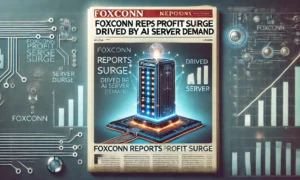In 2024, the Indian automotive market is on the verge of a groundbreaking transformation as global electric vehicle (EV) giant Tesla prepares to launch its operations in India. In partnership with real estate developer DLF, Tesla is set to open its first showroom in the Delhi-NCR region, marking the beginning of a long-awaited expansion into one of the world’s fastest-growing automotive markets. This strategic move highlights the increasing significance of India as a key player in the global EV landscape and reflects the nation’s evolving push toward sustainability and innovation in the automotive sector.
Tesla’s entry into India is poised to redefine the electric vehicle market, accelerating the country’s transition from conventional gasoline-powered vehicles to clean, sustainable transportation. The company’s mission, which centers on environmental sustainability and energy innovation, aligns perfectly with India’s growing demand for eco-friendly mobility solutions. As the Indian government intensifies efforts to reduce carbon emissions and promote electric mobility through policy initiatives and incentives, Tesla’s arrival could play a pivotal role in shaping the future of the automotive industry in India.
A Long-Awaited Move: Tesla’s India Strategy
Tesla, led by visionary entrepreneur Elon Musk, has long been regarded as a leader in the EV space, with its vehicles setting the standard for performance, technology, and sustainability. For years, Indian consumers have eagerly awaited the arrival of Tesla’s groundbreaking electric vehicles, but logistical and regulatory hurdles have delayed the company’s entry. However, with the growing momentum in the electric mobility sector in India, Tesla has now made significant strides in realizing its plans to establish a foothold in the country.
Through its partnership with DLF, one of India’s premier real estate developers, Tesla is strategically positioning itself in the Delhi-NCR region, one of the country’s most lucrative and progressive markets. DLF’s expertise in prime retail spaces and large-scale infrastructure development has provided Tesla with the ideal platform to launch its presence in India. Tesla’s showroom in Delhi-NCR is expected to be a key hub for showcasing its vehicles, with the brand aiming to tap into India’s growing upper-middle-class and affluent consumers who are increasingly inclined toward high-tech, sustainable products.
Tesla’s Impact on the Indian EV Market
India’s electric vehicle market is still in its nascent stages compared to more mature markets such as the United States and Europe. However, the country has seen a significant surge in interest in electric vehicles, driven by both environmental concerns and a growing awareness of the benefits of EVs in terms of cost savings, energy efficiency, and sustainability. The Indian government has set ambitious targets to reduce the country’s reliance on fossil fuels and promote electric mobility, with a goal of having 30% of all vehicles on Indian roads powered by electricity by 2030.
Tesla’s entry is expected to accelerate the adoption of electric vehicles in India. The company’s reputation for cutting-edge technology, long-range batteries, and high-performance vehicles will likely serve as a major catalyst for India’s transition to cleaner transportation options. Tesla’s vehicles, known for their powerful acceleration, minimalist design, and advanced autonomous driving capabilities, will appeal to India’s tech-savvy consumers who seek luxury, innovation, and sustainability.
In addition to offering high-end EV models like the Model S, Model 3, Model X, and Model Y, Tesla’s entry into the Indian market will likely drive competition among both domestic and international automakers, pushing them to invest more heavily in electric mobility solutions. Companies like Tata Motors, Mahindra & Mahindra, and Hyundai, which have already made significant strides in the EV market, will face increased pressure to innovate and improve their electric vehicle offerings to compete with Tesla’s premium vehicles.
Tesla’s Contribution to India’s Clean Energy Goals
One of the core tenets of Tesla’s mission is to accelerate the world’s transition to sustainable energy. This aligns closely with India’s objectives to reduce carbon emissions and address the growing environmental concerns surrounding air pollution. With its electric vehicles and energy storage solutions, Tesla is well-positioned to contribute significantly to India’s clean energy goals.
Tesla’s electric vehicles offer several environmental benefits, including reduced greenhouse gas emissions, lower air pollution, and decreased dependence on fossil fuels. As the Indian government pushes for greater adoption of electric vehicles, Tesla’s presence in India will undoubtedly encourage other automakers to invest in cleaner, greener technologies.
Beyond electric vehicles, Tesla’s energy division, which includes solar products and energy storage solutions, could also play a key role in India’s transition to renewable energy. Tesla’s Powerwall, Powerpack, and Solar Roof products could be introduced to the Indian market to complement the growth of solar energy adoption, particularly in residential and commercial applications. By combining electric mobility with renewable energy solutions, Tesla has the potential to reshape India’s energy landscape and support the country’s efforts to meet its climate goals.
Challenges Tesla Faces in India
While Tesla’s entry into India is a highly anticipated event, the company is likely to face several challenges as it navigates the complexities of the Indian market.
1. Infrastructure and Charging Networks
One of the most significant hurdles Tesla will face in India is the country’s underdeveloped EV charging infrastructure. While Tesla has built a robust network of Supercharger stations in other countries, the availability of charging stations in India is still limited. Tesla’s ability to establish an extensive and reliable network of charging points will be crucial to the success of its vehicles in India. The company may need to collaborate with local stakeholders, such as government agencies, utility companies, and private developers, to build the necessary infrastructure to support widespread EV adoption.
2. Pricing and Affordability
Tesla’s vehicles are premium products that come with a hefty price tag, which may limit their appeal to the broader Indian consumer base. While Tesla is known for producing high-performance vehicles, the pricing of its cars may be prohibitive for the majority of Indian consumers, particularly in a price-sensitive market. To address this, Tesla may need to introduce more affordable models tailored to the Indian market. The company may also need to leverage government incentives and subsidies to make its vehicles more accessible to a wider audience.
3. Local Manufacturing and Import Taxes
India imposes high import duties on foreign-made vehicles, which significantly increases the cost of importing electric cars. This could pose a challenge for Tesla, which currently manufactures its vehicles primarily in the United States and China. To reduce costs and make its vehicles more affordable, Tesla may eventually need to set up local manufacturing facilities in India. This would also allow Tesla to comply with India’s “Make in India” initiative, which encourages foreign companies to manufacture products locally.
4. Competition
The electric vehicle market in India is becoming increasingly competitive, with a growing number of domestic and international players entering the market. Companies like Tata Motors, Mahindra & Mahindra, and Hyundai have already launched affordable EV models, and newer entrants like Rivian and BYD are looking to expand their footprint in the country. To differentiate itself from competitors, Tesla will need to leverage its brand value, cutting-edge technology, and global expertise to offer consumers a compelling value proposition.
The Road Ahead: Tesla’s Future in India
Despite these challenges, Tesla’s entry into India represents a significant step toward transforming the country’s automotive and energy landscape. With its focus on sustainability, innovation, and cutting-edge technology, Tesla is well-positioned to become a key player in India’s EV market. As the Indian government continues to roll out policies and incentives to promote electric mobility, Tesla’s presence will help accelerate the adoption of electric vehicles and pave the way for a cleaner, greener future.
Tesla’s showroom in the Delhi-NCR region is just the beginning of the company’s journey in India. Over time, Tesla is expected to expand its presence in other major cities, including Mumbai, Bangalore, and Chennai, while simultaneously working on expanding its charging infrastructure and localizing its product offerings. The company’s ability to innovate, adapt, and collaborate with local stakeholders will be key to its success in India.
As Tesla continues to push the boundaries of what’s possible in electric mobility, its journey in India will likely serve as a blueprint for other global automakers seeking to enter the country’s burgeoning EV market.
Tesla’s Entry Into India: Key Highlights
| Key Aspect | Details |
|---|---|
| Partnership | Tesla collaborates with DLF for showroom launch in Delhi-NCR |
| Launch Plans | Expected showroom opening in 2024-2025 |
| Vehicle Models | Tesla Model S, Model 3, Model X, Model Y |
| Challenges | Charging infrastructure, high pricing, local manufacturing |
| Market Potential | Expanding EV adoption, contributing to India’s clean energy goals |
| Strategic Focus | Sustainability, innovation, energy solutions, premium market |


